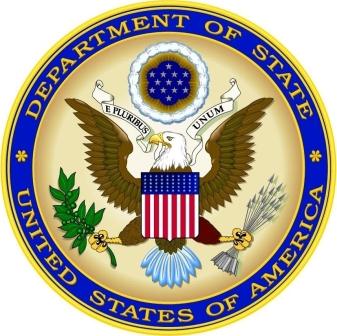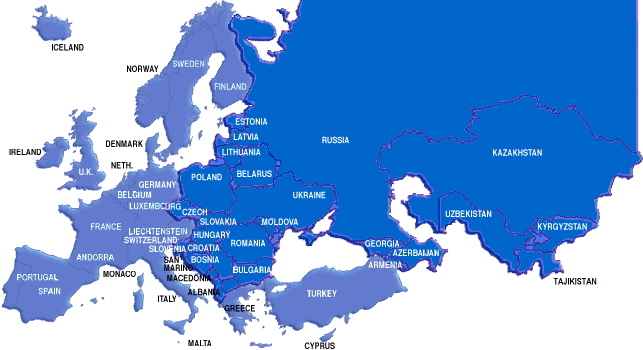150,000 Evangelicals in Bulgaria
 BUREAU OF DEMOCRACY, HUMAN RIGHTS, AND LABOR International Religious Freedom Report 2009
BUREAU OF DEMOCRACY, HUMAN RIGHTS, AND LABOR International Religious Freedom Report 2009
Section I. Religious Demography
The country has an area of 42,855 square miles and a population of 7.6 million. The majority of the population, estimated at 85 percent, identifies itself as Orthodox Christian. Muslims comprise the largest minority, estimated at 13 percent. According to the Council of Ministers Religious Confessions Directorate, there are approximately 150,000 evangelical Protestants [in Bulgaria] ….
Source: http://www.state.gov/g/drl/rls/irf/2009/127303.htm
Christmas for Evangelicals
Christmas for Evangelicals
Communism changed a lot in the Bulgarian mentality. For 45 years Christian holidays like Christmas and Easter were strictly forbidden. Christmas symbols and words were changed in an anti-Christian propaganda. For example, the traditional Bulgarian Christmas greeting Tchestito Rozdestvo Hristovo (Happy Birth of Christ) was replaced with Vesela Koleda (Joyfull Koleda – the word koleda derives from the Bulgarian word “kolia” which means to kill, to slay, and symbolizes the Bulgarian custom of slaying a pig in the preparation of the Christmas dinner). The name of Santa Claus was replaced with Grandpa Frost – again an old man with red clothing, long white beard and bag with presents; however, completely separated from the Christian meaning of the holiday. Even the traditional Orthodox Church was limited in their practice of Christmas.
Nevertheless, regardless of the persecution, secretly or openly, Christmas has always been present among the Bulgarian Protestants. Usually the church congregation would gather for a special Christmas service on Christmas Eve. In the Underground Church this event was one of the few occasions where the local congregation would come together and remain unnoticed by the secret police because of the celebration going on. Using the rare opportunity the church would not only use the time for fellowship but also for Communion and Baptism services. Since the churches did not own buildings, the baptismal would usually be performed in a river after the ice had been broken.
With the Fall of the Berlin Wall the situation changed dramatically. Through the largest spiritual revival Eastern Europe has ever known, in 10 years millions came to Christ. In the midst of the severe national economic crises, for protestants Christmas became not only a time of celebration, but also a time to reach to the ones in need. Thus the renewed Christmas became more powerful as it not only reflected on the Christian tradition but a real-life inspired practice of Christianity.
The Bulgarian Church of God is no stranger to these events. Every Christmas is seen as a ministry opportunity, as several activities take place. There are Christmas dinners for the needy which take place in the churches that sponsor social centers across the country. There is also a Christmas gift service for children from homes for children.
Christmas is a time when the church congregation comes together for reconciliation and recognition of the Birth of Christ. As the Christmas message is preached and Silent Night is sung, this holiday also becomes a celebration of the liberation of spirit and soul, provided by God through His Son. Thus for the church in a post-Communist context Christmas is the gift of liberty to come together and to worship. Remembering the Son of God who came to liberate us from sin and death we also wish you a Marry Christmas and a Happy New Year.
Struggling with the Past: Evangelicals in Postcommunist Europe (by Juraj Kusnierik)
The future is not what it used to be!’, shouted a Czech rock singer in 1990. He captured what many of us felt – the times have changed. Big banners proclaiming that ‘we are building a communist society’ were torn down from the façades of schools and factories. The alleged straight line of history – from capitalism through socialism to communism – was broken. Now, after six more years, most would agree that this line was nothing more than wishful thinking, an inverted utopia.
Solidarity trade unions in Gdansk, the opening of the western borders of Hungary, demolition of the Berlin Wall, and finally the Velvet Revolution in Czechoslovakia were not only political revolutions. The most significant change took place in our minds. A change so profound and sensitive that we are still too much ‘in it’ to evaluate it objectively. But we cannot avoid doing it anyway. It is like a piece of modern art – we have to see the frame to enjoy the picture.
Under communism modernity used to be identified with the Western world. Modern technology, modern fashion, modern music – although they had their ‘Eastern’ equivalents, those who wanted to be ‘really modern’ went for Western style (which was, for understandable reasons, usually not easy at all). Only after the regime that aspired to bring about the end of history came to an end, we discovered the obvious – that there could hardly be a more typical example of the modernistic project than communism with its ‘scientific atheism’, ‘historic materialism’ and social engineering. Modernistic assumptions had profound impacts on public life, culture, ethics and, to a very large extent, on the church. They are the shadows of the past, stretching over our largely post-modernist landscape, thus creating a unique blend of ‘post-communist post-modernism’.
What are the main characteristics of these times of transformation? Let me suggest some of them, dealing primarily with the church’s attitudes to the secular world.
Strong Authority Structures
The pastor of my church invited my friend and me for Sunday lunch. It was sometime in 1985, when some of us tried to communicate the gospel to our fellow university students. After lunch, this thoughtful and brave man said: “If the secret police question your activities, tell them that whatever you do (especially with regard to talking about God on the campus), you do because I asked you to do it. Tell them I am personally responsible for it.” This pastor created a space for evangelism, and bravely and without fear put himself into the position of responsibility before the state. However, in order to fulfill this responsibility, he had to be informed about all activities of all church members – including relationships with one’s boss or neighbours, family problems or one’s children’s performance in school. He often had his say when young people in the church were choosing their professions or education, and personally knowing some government bureaucrats, often helped them to get a good job or to be accepted at a university (for which one had to be politically screened). One of my friends – a very gifted violinist – had to study chemistry instead of music, because the pastor told him that to be a musician is not good for a Christian.
People in leading positions in church were well informed not only so that they could deal with the hostile government. They often assumed an extended control and power over the lives of their ‘flock’. Independent activity by church members was discouraged. The Church was more easily controllable when it was uniform and managed from one centre.
Some church leaders used their authority and power more wisely than others, but only a few could imagine a church without strong authoritarian leadership. It was both an impact of, and a reaction to the rigidly totalitarian structure of society. It was also an expression of anxiety and fear that the church would not survive into the next generation – which was what communist ideologists were saying, and Christians sometimes found it hard not to believe them. It is a paradox that many young people, growing up in evangelical churches, left them not because they lost faith, but because they wanted to protect their privacy and be free to make their own decisions.
Private Faith – Lack of involvement in Society
Most communist ideologists did not have much against ‘religion as such’. The problem arose as soon as religion critically spoke about ‘non-religious’ issues, especially politics. Christianity (or any other religion, for that matter) was tolerated if it stayed in one’s private sphere, or, in more liberal circumstances, in family or church. Keeping in mind the fact that there were times and places where one could end up in a concentration camp for just ‘being’ a Christian, it was a great improvement.
The division between public and private, with our religious affections belonging clearly to the latter, is deeply embedded in our minds. Of course, it was not communists who first came with this idea. It has been a central part of the modernist view of the world, however only the Communists had power to ‘design’ society accordingly.
Most Eastern European Christians accepted this division as one rule of the game. Several generations of Christians under the communist regime were taught they should be apolitical, they should use whatever opportunities to spread gospel. To be light and salt was understood almost exclusively as to give a good example by one’s behaviour.
Fear of Society – Minority Complex
The result of a lack of involvement in culture and society led to broken communication with non-religious people. The Church has not developed the language needed to communicate with those outside her own circles. Inability to communicate led to a fear of the non-Christian world. Believers tended to see themselves as a marginalized minority: with fixed rules, defensive attitudes, unwillingness to change, strong loyalty to the group, etc.. These were defensive mechanisms through which the minority has learned to survive and to keep its identity intact. One cannot say these are the result of persecution as they can be found where persecution does not exist; however, persecution certainly intensified the process.
There is a tension hidden in these attitudes. Evangelical Christians feel responsible for communicating the gospel to secular culture. They feel uneasy, if not threatened, when they have to step out of the safe environment of their churches. So they create ‘special events’, they try to export the church atmosphere and culture to the secular world, only to find out, by and large, that they talk to themselves again. This fosters their feelings of alienation from the world.
Modern Christians in Postmodern Culture
The three issues above – authority structures, privatization of faith, and fear of society – are, among others, marks of the strong influence that the communist version of modernity has had on our Christian community. Evangelical Christians have taken so many modernistic assumptions for granted that we often cannot tell the difference between them and our Christian convictions. While they might have helped us to survive red modernism, now it is over, they are now our burden.
The Church in post communist Europe finds itself in a period of profound transformation. Old authoritarian structures are not able to keep it together, An exclusive attitude to the world outside is no longer sustainable, defensive groups of believers are being marginalized even more.
Evangelical churches, especially their official establishments, are not very sensitive to these trends. Their main goal seems to be ‘to keep it as it is’. They hope for a major revival, with hymnbooks from the 19th century being taken from the shelves again, and enthusiastic evangelists ‘boldly preaching the Word’ on the streets. Why else would God have given us freedom?
There is a growing number of thoughtful people from all denominations who do not want to take either the assumptions of modernity or postmodernity for granted, who want to think them through and understand them, while, at the same time, re-discovering evangelical worship, community, spirituality and responsibility for public life. Whether in modern or postmodern culture, they want to seek a Christian alternative – so that the Gospel, and not our cultural assumptions would be the offence.
God gave us freedom. We did not deserve it. We enjoy it and we try to live and act responsibly. We hope God will bless us and help us in our time after modernity.








